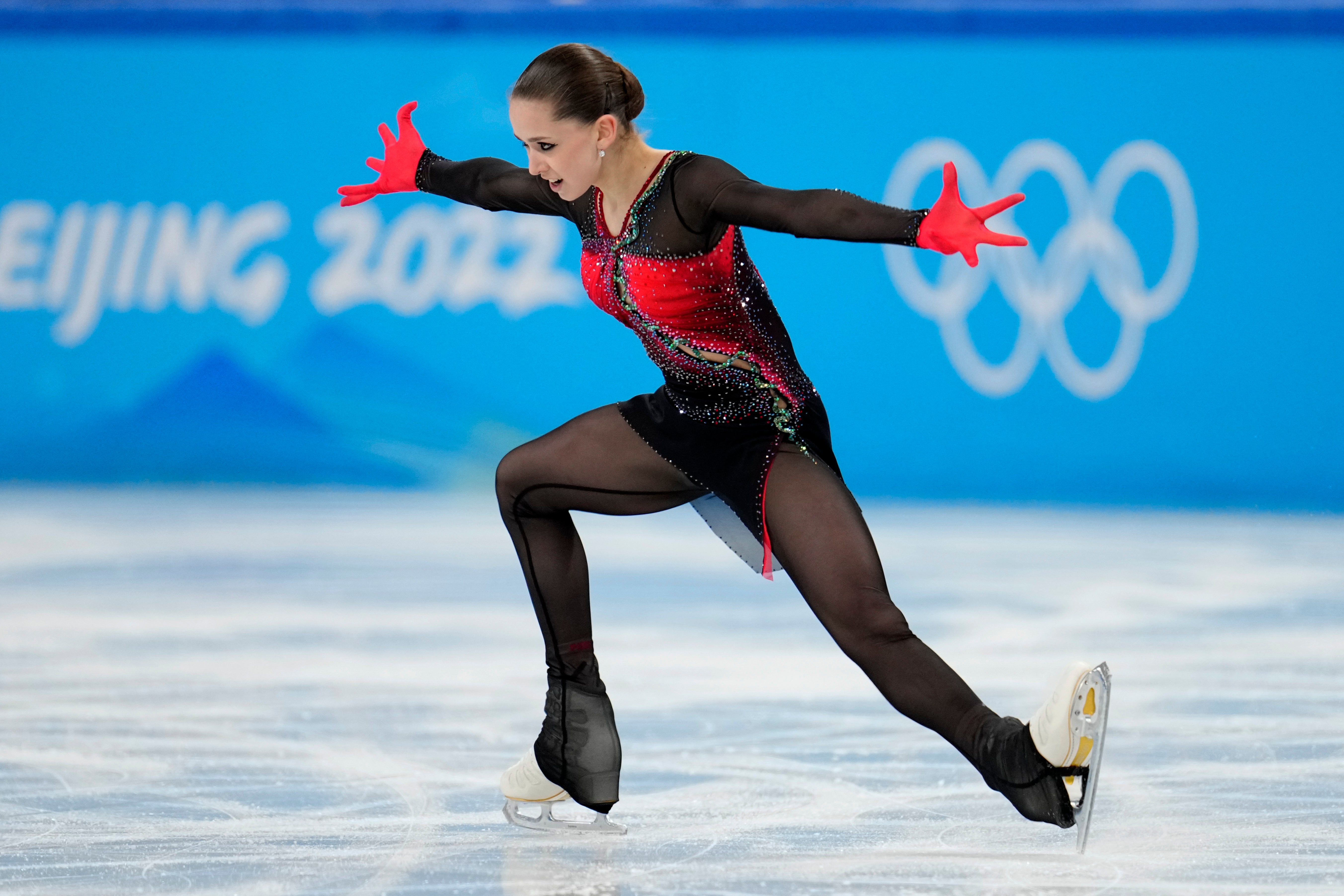EXPLAINER: The drug behind Russia's Olympic skating case
The first big doping case at the games involves one of its biggest stars

The first big doping case at the Beijing Olympics involves one of its biggest stars. And it seems far from straightforward, not least because she is just 15 years old and has protections as a minor in the anti-doping rule book.
The country at the center of it? Russia Again.
Here's a look at the drug that Kamila Valieva of the Russia Olympic Committee — the name under which Russia is competing because of previous doping violations — is suspected of taking, and how the situation might play out in coming days.
WHAT IS THE DRUG?
The medication trimetazidine is a metabolic agent that helps prevent angina attacks and treats the symptoms of vertigo, according to the European Union’s medicines agency. It can increase blood flow efficiency and improve endurance — both crucial to any high-end athletic performance.
It is on the prohibited list managed by the World Anti-Doping Agency in the category of “hormone and metabolic modulators.”
PREVIOUS DOPING CASES
The most famous case of trimetazidine in sports doping involved Chinese star swimmer Sun Yang
The three-time Olympic champion served a three-month ban in 2014 in a ruling that was initially not published by China’s anti-doping agency.
Because it was Sun’s first doping offense, he was punished more severely for his second, and more high-profile, offense of refusing to cooperate with a sample collections team at his home in China.
Russian bobsledder Nadezhda Sergeeva tested positive for trimetazidine at the 2018 Pyeongchang Olympics. She was disqualified from the two-woman bob event and served an eight-month ban.
WHO WILL HANDLE THE CASE?
The athlete-testing program for the Olympics is run by the International Testing Agency, based in the IOC’s home city Lausanne Switzerland.
Typical Olympic doping cases are handled and announced by the ITA, which imposes a provisional suspension that removes an athlete from competition.
Athletes and their teams can challenge those decisions at the Court of Arbitration for Sport which is in Beijing to handle urgent cases. It has a games-time panel of judges to specialize in doping cases.
Beyond the Olympics, an athlete’s governing body — in this case, the International Skating Union (ISU) — should manage a disciplinary case that typically leads to a ban.
Valieva’s cases could be more complicated if, as reported, the sample in question was taken before the official Olympic period began at an ISU event.
At the Tokyo Olympics, Nigerian sprinter Blessing Okagbare was pulled from competing ahead of the 100-meters semifinal when a pre-Games test returned as positive. Her suspension was imposed by track and field’s Athletics Integrity Unit.
Valieva’s case also should involve the International Olympic Committee because she and the ROC team already competed and won the figure skating team event.
Stripping titles and re-allocating medals should be the responsibility of a disciplinary committee chaired by Denis Oswald, a long-time IOC member and Swiss lawyer.
AGE IS A FACTOR
Another complicating factor is Valieva’s age, which can give her extra protection.
The World Anti-Doping Code classes minors as a “person who has not reached the age of eighteen years.”
While public disclosure of cases is mandatory for adult athletes, for minors the question of identifying them “shall be proportionate to the facts and circumstances of the case.”
The circumstances of Valieva’s case should also focus on the advice and decisions of her team officials and coaches.
Subscribe to Independent Premium to bookmark this article
Want to bookmark your favourite articles and stories to read or reference later? Start your Independent Premium subscription today.
